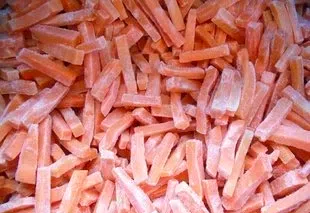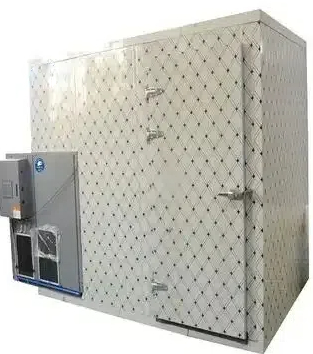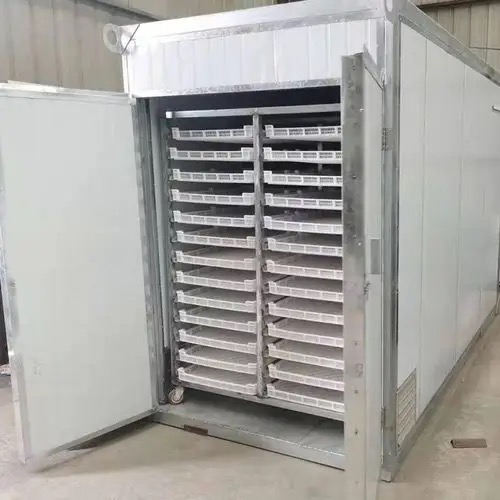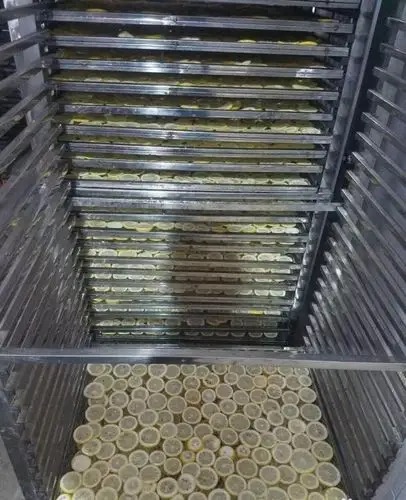
Content Menu
● Introduction
● Understanding Heat Pump Dryers
● Benefits of Using Heat Pump Dryers for Food
● Applications of Heat Pump Dryers in Food Industry
● Challenges and Considerations
● Future Trends in Food Drying Technology
● Conclusion
● Frequently Asked Questions
>> 1. What are the main advantages of heat pump dryers for food?
>> 2. How do heat pump dryers compare to traditional dehydrators?
>> 3. Are heat pump dryers suitable for home use?
>> 4. What types of food can be dried using heat pump technology?
>> 5. What should I consider when purchasing a heat pump dryer?
Introduction
Food preservation is a critical aspect of food safety and sustainability. With the increasing demand for healthy, long-lasting food options, innovative drying technologies have emerged. Among these, heat pump dryers stand out for their efficiency and effectiveness. This article explores the reliability of heat pump dryers in the food drying process, highlighting their benefits, applications, and future trends.

Understanding Heat Pump Dryers
Heat pump dryers operate on a simple yet effective principle: they use a refrigeration cycle to remove moisture from food. Unlike traditional dryers that rely on high temperatures and airflow, heat pump dryers maintain a lower temperature, which helps preserve the food's nutritional value and flavor. The process involves drawing in air, heating it, and circulating it through the food, where moisture is absorbed and then condensed back into water.
Benefits of Using Heat Pump Dryers for Food
One of the most significant advantages of heat pump dryers is their energy efficiency. They consume less electricity compared to conventional drying methods, leading to lower operational costs. Additionally, the gentle drying process helps retain essential nutrients and flavors, making heat pump dryers an excellent choice for health-conscious consumers.
Moreover, heat pump dryers are versatile. They can be used to dry a wide range of foods, from fruits and vegetables to meats and herbs. This adaptability makes them suitable for both commercial food processing and home use.
Applications of Heat Pump Dryers in Food Industry
In the commercial food industry, heat pump dryers are increasingly being adopted for their efficiency and reliability. They are used in various applications, including drying fruits for snacks, vegetables for soups, and herbs for seasoning. The ability to control temperature and humidity levels allows for precise drying, ensuring high-quality end products.
For home users, heat pump dryers offer a convenient solution for preserving seasonal produce. Home cooks can dry fruits and vegetables at home, creating healthy snacks and ingredients for future meals. The compact design of many heat pump dryers makes them suitable for kitchens of all sizes.

Challenges and Considerations
Despite their many advantages, heat pump dryers do come with some challenges. The initial investment can be higher than traditional dehydrators, which may deter some consumers. Additionally, while they are low maintenance, users must still be aware of the need to clean filters and check for any operational issues.
Another consideration is the drying time. Heat pump dryers typically take longer to dry food compared to conventional methods. However, the benefits of energy savings and food quality often outweigh this drawback.
Future Trends in Food Drying Technology
The future of food drying technology looks promising, with ongoing innovations in heat pump systems. Manufacturers are focusing on improving energy efficiency and reducing costs, making these dryers more accessible to consumers. Additionally, as sustainability becomes a priority, heat pump dryers are positioned to play a significant role in reducing food waste and energy consumption.
Market trends indicate a growing consumer preference for healthy, preserved foods, which will likely drive demand for heat pump dryers. As more people become aware of the benefits of food preservation, the adoption of this technology is expected to increase.
Conclusion
Heat pump dryers represent a reliable and efficient solution for food drying. Their energy-saving capabilities, versatility, and ability to preserve food quality make them an excellent choice for both commercial and home applications. As technology continues to advance, heat pump dryers will likely become a staple in food preservation, contributing to healthier eating habits and reduced food waste.

Frequently Asked Questions
1. What are the main advantages of heat pump dryers for food?
Heat pump dryers are energy-efficient, preserve food quality, and can handle various food types.
2. How do heat pump dryers compare to traditional dehydrators?
They use less energy, maintain lower temperatures, and often provide better nutrient retention.
3. Are heat pump dryers suitable for home use?
Yes, they are compact and can be used effectively in home kitchens.
4. What types of food can be dried using heat pump technology?
Fruits, vegetables, herbs, and even meats can be dried effectively.
5. What should I consider when purchasing a heat pump dryer?
Look for energy efficiency, capacity, and specific features that suit your drying needs.












